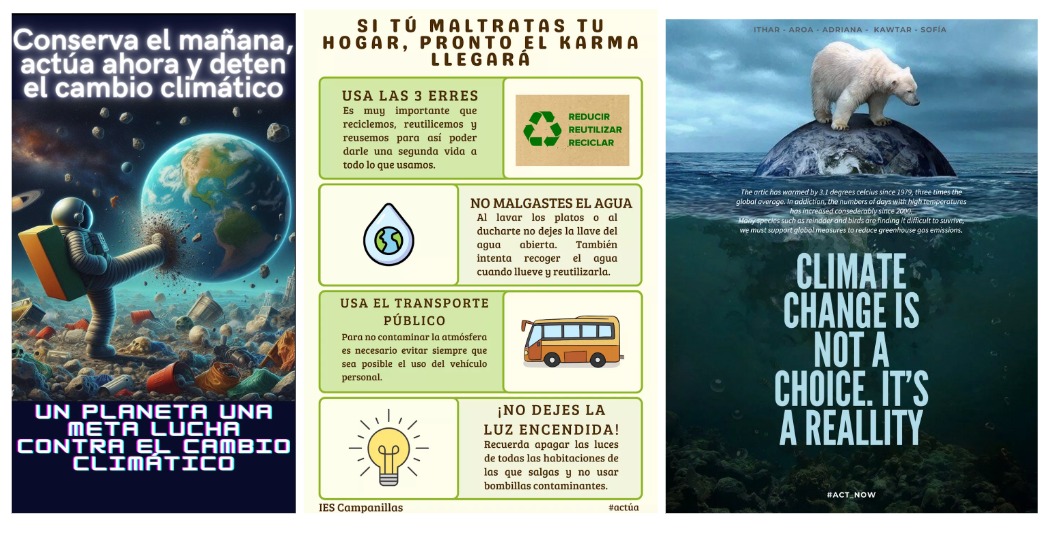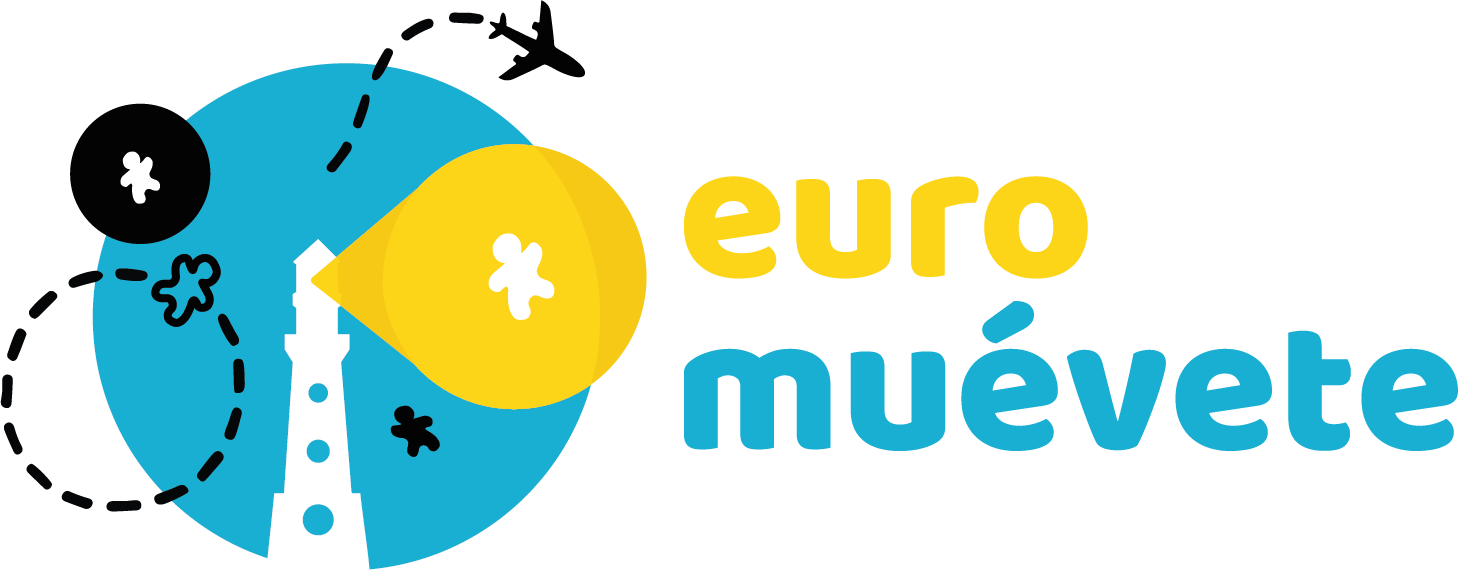Teachers’ Workshops

Following the comprehensive teacher trainings in WP3, the DisinformACTION consortium moved to WP4, focusing on the practical implementation of climate change education through workshops led by trained teachers. Each partner country saw teachers applying the Climate Change Ambassadors methodology within their communities, successfully engaging students in meaningful climate change education. These workshops aimed to create a ripple effect, equipping students with the knowledge and skills to become active climate advocates in their own right.
In Spain, 200 students aged 15-19 were involved in workshops conducted by the trained teachers, which took place in several schools around the country: the 2nd and 9th of April in IES Universidad Laboral, 3rd, 8th, and 11th of April in IES Campanillas, 9th of April in IES Valentín Turienzo, 3rd of April IES Jarifa, 11th of April in IES Marxadella, 9th and 11th of April in Col·legi Sant Gabriel.
The comparison reveals a significant improvement in understanding among students. The proportion of students who correctly identified the difference between disinformation and misinformation increased dramatically from 5.3% in the initial survey to 78.7% in the final survey. Similarly, there was a noticeable improvement in the ability to spot fake news, with the proportion of students who could not identify it decreasing from 32.4% to 25.3%. This suggests a substantial enhancement in students’ skills over the course of the study. Additionally, the percentage of students who correctly defined climate change increased from 84.4% to 88%, and those who correctly identified tips for effective online communication rose from 70.6% to 81.9%. By the end of the workshop, 79.1% of students felt they understood at least some aspects of identifying and countering climate change disinformation. Feedback on the workshops was largely positive, with 62.4% expressing that they liked or really liked the sessions, and 74.85% felt they learned new skills. Regarding behavioral change post-workshops, 42.4% believed they would behave differently, while 32% were uncertain. This data highlights the workshops’ effectiveness in improving students’ understanding and skills related to media literacy and critical thinking.
Here are a few social media campaigns on climate change created by the students during the workshops:

Several strengths were identified during the implementation of the program, reflecting both the students’ preferences and the teachers’ observations:
Engagement with ice-breakers:
Students expressed a strong appreciation for the ice-breakers used to start each chapter. These activities were highly effective in capturing students’ interest and setting a positive tone for each session.
Preferred methods:
The role-playing activities emerged as one of the favorite methods among students. These exercises allowed students to immerse themselves in real-world scenarios, enhancing their understanding and engagement.
The debate was also highly favored. They provided a platform for students to articulate their views, engage in critical thinking, and develop their argumentation skills.
The process of creating campaigns was particularly popular. Students enjoyed both designing the campaigns on paper and subsequently executing them using digital tools. This dual-phase approach not only fostered creativity but also helped students to practically apply their learning.
Teacher observations:
Teachers noted that the topic was highly interesting to students, leading to increased attention and active participation throughout the workshops. There was also a significant improvement in students’ media literacy, particularly regarding the concepts covered in the workshops. This enhanced understanding was evident in their ability to critically analyze and evaluate media content. Finally, the workshops also contributed to a noticeable enhancement in students’ creativity. This was reflected in their innovative approaches to campaign creation and problem-solving during role plays and debates.
Overall, the implementation of these methods resulted in a highly engaging and educational experience, significantly improving students’ media literacy and creative skills.
During the implementation of the activity, several areas for improvement were identified based on feedback from teachers. These areas primarily pertain to the chapters related to the creation and development of online campaigns (Chapters 3 and 4):
-
One teacher indicated that completing the entire methodology within a four-hour timeframe was impractical. It was suggested to divide the sessions, dedicating one morning to the first three chapters and another morning exclusively for the creation and development of the online campaign.
-
Another teacher emphasized that the explanation of Canva, the digital tool used for campaign creation, required more time. Providing a more detailed instruction on Canva would enable students to utilize the tool more effectively.
-
A suggestion was made to reduce the overall group size. Smaller groups for campaign creation could lead to more focused efforts and potentially higher quality campaigns.
-
One teacher noted that the topics for the campaigns were not sufficiently defined, making it challenging for students to conceptualize their campaigns and for teachers to guide them effectively. Clearer, more specific topics could facilitate better planning and execution.
